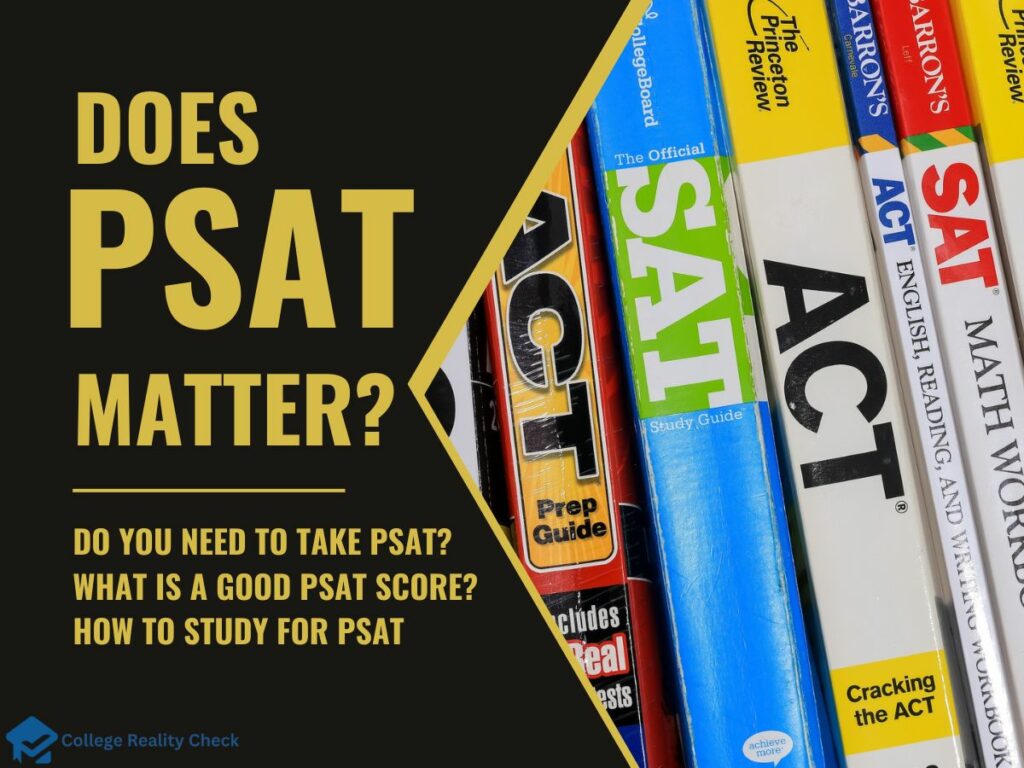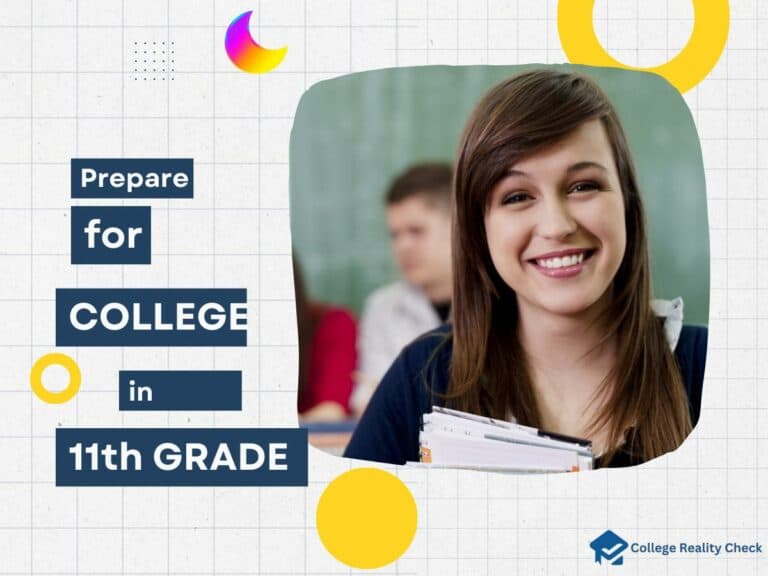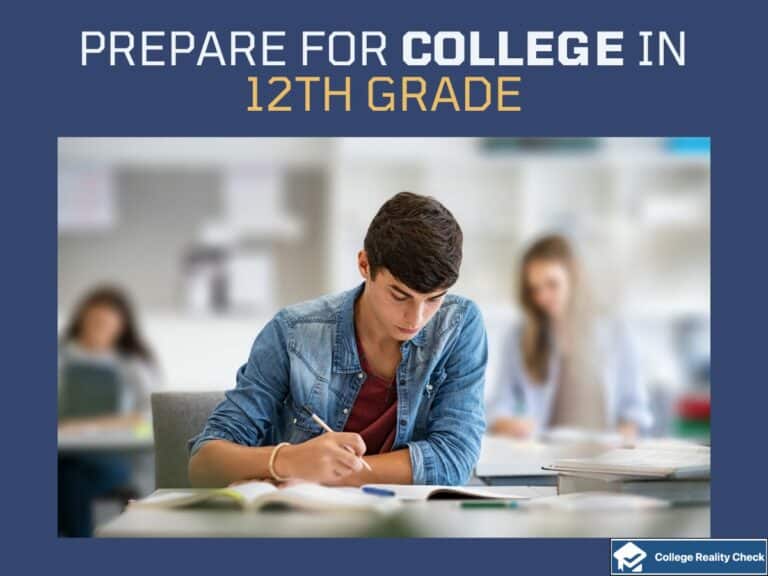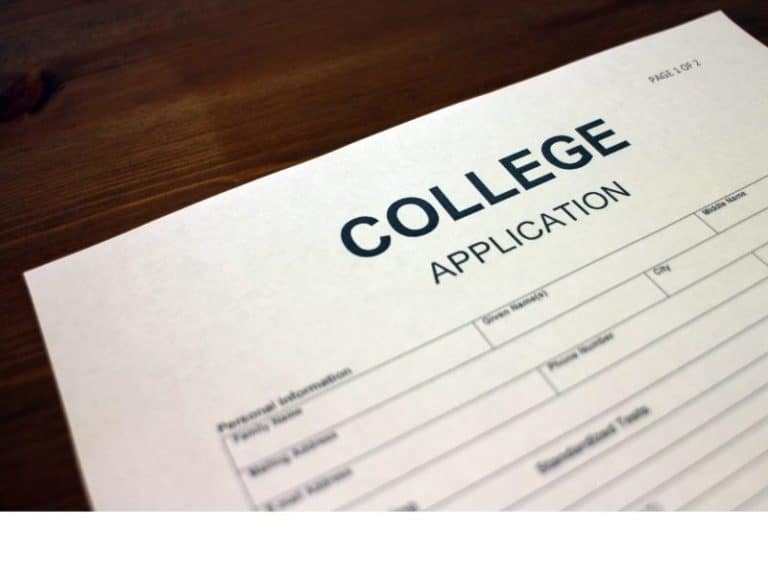9 Steps to College Readiness in 9th Grade: Complete Guide
The college application process gets more and more competitive with each admissions cycle.
Especially if you are thinking about enrolling in a degree program at a high-ranking institution many dream of attending, planning early to meet acceptance criteria is a must to get into it.
Four years isn’t that long.
One day you are transitioning from middle school to secondary school, and then you are filling out the Common App or Coalition App the next — time flies in high school!
As a 9th grader, you must focus on reaping academic excellence.
However, it isn’t too early to start laying the groundwork for college admissions success.
But can you apply for college in 9th grade?
Some postsecondary institutions offer pre-college programs for high-achieving students.
Generally speaking, it’s recommended for most high schoolers to start applying to college during the fall of their senior year to give themselves enough time to improve their grades and gain leadership experience.

1. Research Colleges and Requirements
The 9th grade is too soon for you to have a finalized college list.
Lots of things can happen in high school — your dream career might change as you explore various extracurriculars and electives, you might discover the wonder of studying abroad, etc.
But it won’t hurt to have a list of prospective colleges to apply to in the future.
Establish your academic and professional goals and see which colleges and universities can help you meet them.
Check out reputations, geographic locations, campus cultures, and costs to narrow your options.
Determine what sort of students get in academic-wise.
It’s also essential to research application requirements so that you can start working on some of them as early as the 9th grade, thus allowing you to stay ahead in the admissions game.
2. Talk to the High School Counselor
The high school counselor is the best person on any high school campus to discuss your college plans with.
He or she has the perfect answers not only to your high school questions but also to college preparation-related ones — don’t feel too embarrassed to ask questions about your personal life, too!
Inform your school counselor about your college plan thus far, even if it’s still in its infancy.
Some examples of questions to ask are:
- What courses should I take to be ready for college?
- Which elective courses do you recommend for my intended major?
- What AP courses are available in this school, and which do you suggest I take?
- What standardized tests should I take and when?
- Do you have a schedule of upcoming college fairs I should attend?
- Are there any special scholarships available that I can start working toward?
- How often should I meet with you to ensure I’m on track?
3. Participate in Extracurriculars
The Common App and Coalition App have an Activities section.
It’s where you have to enumerate all extracurricular activities you have participated in throughout your high school career — there are ten available spaces on the Common App and eight on the Coalition App.
College admissions officers don’t want just any EA.
They want to see meaningful commitment!
Exploring different extracurriculars in the 9th grade allows you to try out your various options and determine which ones you are likely to keep participating in from your freshman to your senior year.
Pursue your interests, but don’t forget to try those that help build skills, like leadership.
4. Develop Good Study Habits
Nothing is as important as your GPA among various college admissions criteria.
I cannot stress enough the critical role your high school grade in college admissions plays.
Such is true even if an institution reviews applications holistically.
Because of this, you must build good study habits in your first year of high school — doing so will help you succeed as high school classes get harder and harder each year.
Of course, it will also come in handy when preparing for the SAT (or PSAT) or the ACT.
Study habits are different from one student to the next.
Experiment with various strategies and determine which approaches work for you the best.

5. Start Taking College Prep Courses
Earlier, I suggested researching college admissions requirements.
It’s important because it allows you to determine which college preparatory courses or prep courses you should take in high school and how many units you should have for each.
Different colleges have varying preferences when it comes to college prep courses.
Some set required units to have, while others just give recommendations.
Here’s what required/recommended prep courses typically look like:
| Course | Units |
|---|---|
| English | 4 |
| Math | 3 or 4 |
| Science | 3 |
| Social Studies | 2 or 3 |
| Foreign Language | 2 or 3 |
It’s worth noting that most selective colleges in the United States prefer 4 units.
6. Register for College-Level Courses
Taking college-level courses is just as important step on how to prepare for college in 9th grade.
Refrain from assuming that AP classes are for junior and senior high school students only.
According to the College Board, the creator and administrator of the Advanced Placement (AP) program, more than one million 9th and 10th grade students took AP courses in 2022.
It adds that taking AP courses early in high school allows you to build skills vital for high school and college success.
Consider taking a mix of easy and hard AP classes to boost your academic rigor.
Don’t forget to opt for those that have something to do with your interests and intended major.
Aim for good AP course grades — these courses weigh more than standard high school courses due to their difficulty level, which means they can substantially boost your weighted GPA.
7. Spend the Summer Doing Enrichment Programs
Summer breaks provide a break from the books.
When it strikes, it’s time for young teens to have some fun and excitement as people their age do as usual.
But it’s also a great idea to grab opportunities to boost your college readiness during the summer.
Taking community college summer classes, for instance, allows you to take college-level courses similar to AP classes, thus increasing the rigor level of your high school record.
Attending skill-building seminars is a wonderful option, too.
Academic programs are not your only choices, though.
From hip-hop summer school to an outdoor adventure camp, anything that allows you to learn something new and gain real-life experience can be enriching and instrumental in your early preparation for college.
Use summer breaks to your advantage by including them in your overall plan on how to start preparing for college in high school.
8. Gear Up for the PSAT
The Preliminary SAT (PSAT) is a practice version of the SAT.
The College Board created it with junior high school students in mind — as a matter of fact, it’s also the National Merit Scholarship Qualifying Test (NMSQT) for 11th graders.
However, you don’t have to wait until you’re an 11th grader to take the PSAT.

You can take the PSAT during your first year of high school.
Some experts argue that 9th graders should wait until the 10th grade to sit for the PSAT.
It’s completely up to you to decide between the PSAT 8/9, an assessment test for 8th and 9th graders whose content closely aligns with the PSAT and SAT or going straight for the PSAT.
9. Build College Funds
Knowing how you will pay for a degree is a critical step on how to prepare for college in high school as a freshman.
According to Bankrate, the average rate of annual college tuition inflation is 8%.
College costs would be substantially higher by the time you are ready to start working on a bachelor’s degree.
Luckily, it’s never too early to save for college.
It’s a good thing, too, that there are various ways to gear up for your tuition.
For instance, you may encourage your parents to set up a college savings account for the future or get a part-time job and put away most — if not all — of your salary each payday.
Applying for external or private scholarships is also an option.
Most merit-based scholarships for first-year high school students require displaying one’s unique talent or skills, ranging from doodling to painting and from writing essays to doing volunteer work.
There are also lottery or scholarship sweepstakes where you just have to hope your name gets picked.
Here are some examples of scholarships available for 9th graders:
- Breakthrough Junior Challenge
- Doodle for Google Competition
- Gloria Barron Prize for Young Heroes
- Project Yellow Light
- Technology Addiction Awareness Scholarship
- The Gallery Collection Create-A-Greeting Card Scholarship
- The VFW Auxiliary’s Young American Creative Patriotic Art Contest
- Too Cool to Pay for School Scholarship
Read Next: How to Prepare for College in 10th Grade
Disclaimer: The views and opinions expressed in this article are those of the authors and do not necessarily represent those of the College Reality Check.






